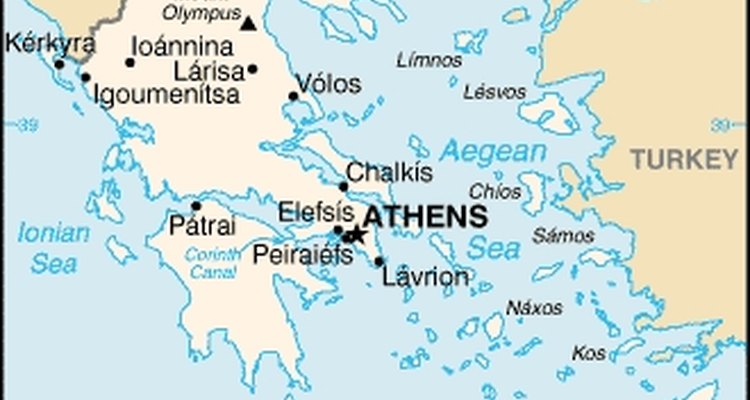
Greek cuisine is distinguished by its use of fresh herbs, olives and olive oil, goat cheese and yogurt, and a extensive variety of seafood. Other staples of Greek cuisine include lamb, eggplant, pine nuts, honey, tomatoes, and phyllo dough. Greek cuisine reflects a number of interesting influences--it contains Levantine, Turkish, Italian and Balkan flavors, which indicate its long history. In fact, the first cookbook was written by the ancient Greek chef Archestratos in 330 B.C.
Olives and Olive Oil
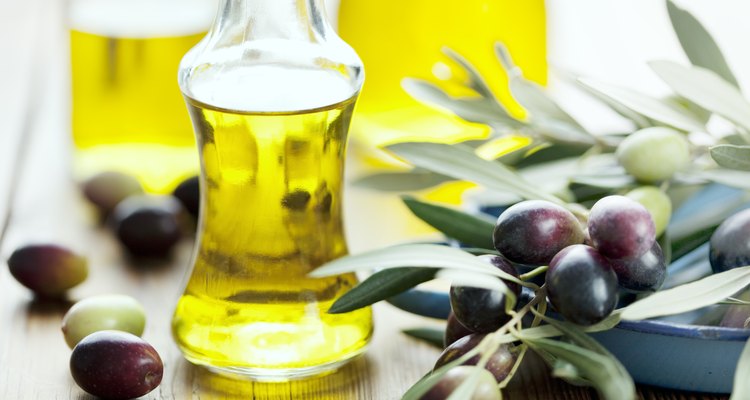
Liv Friis-Larsen/iStock/Getty Images
Olives and olive oil have been central to Greek cuisine for 4,000 years. Olives are seen as a symbol of love and peace in Greek culture, specifically in the Orthodox religion. Olive oil is used to cook everything from appetizers to desserts. Indeed, olive oil is so important to Greek cuisine that Greeks eat more olive oil per capita than any other nation in the world. Greeks also consume large amounts of olives, including them in nearly every meal. Olives may be eaten alone as an appetizer or they may be included as a garnish in salads, stews, entrees and even breads.
Breads
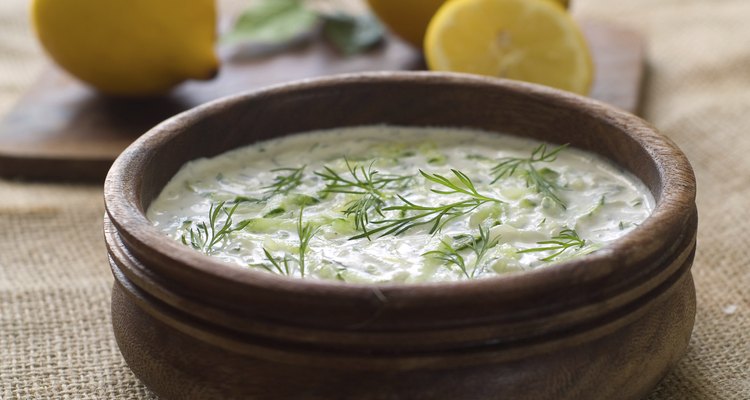
Wiktory/iStock/Getty Images
Breads are a staple of Greek cuisine and are eaten with all meals. There are many varieties of bread, some of them pertaining to specific holidays and celebrations. Breads are often served with a dip such as balsamic vinegar and olive oil, tsatsiki (cucumber-yogurt dip), taramosalata (fish roe salad), or melitzanosalata (eggplant salad). Popular Greek breads include pita, tsoureki, kalouria and paximadi.
Goat Cheese & Yogurt
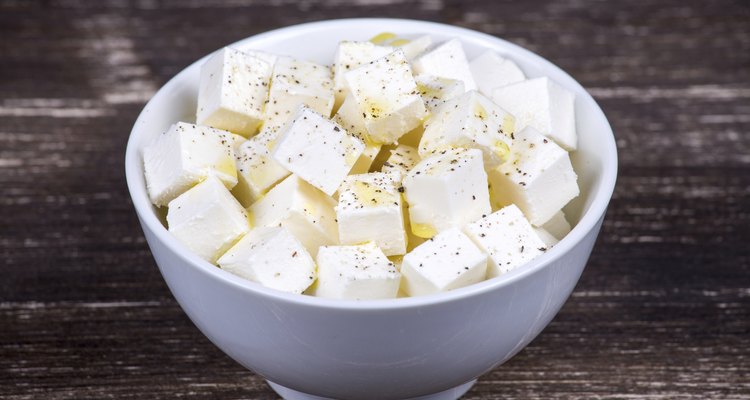
intek1/iStock/Getty Images
Greeks don't generally drink milk, but they do make a number of cheeses from goat's milk. They also make yogurt from goat's milk, which is used to flavor many dishes. Standard cheeses include feta, kasseri, mizzithra and kefalotiri. Feta is widely used, appearing in sandwiches, salads, dips and savory pastries like spanakopita.
Proteins
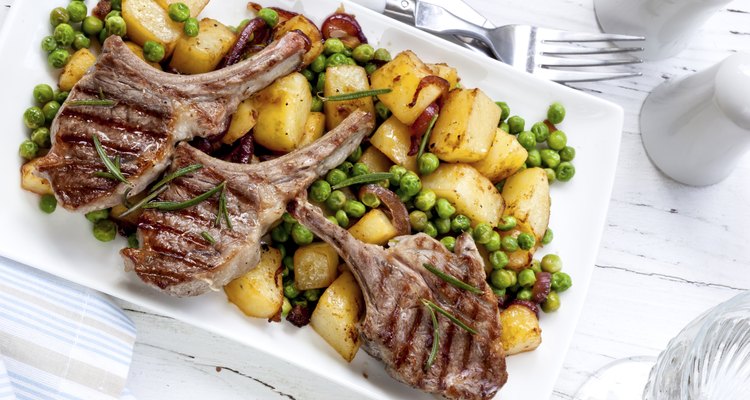
robynmac/iStock/Getty Images
Lamb and seafood are the most common proteins used in Greek cuisine. Many Greeks live in coastal areas and so have access to the Mediterranean's plentiful seafood. Cod, eels, octopus, red mullet, shrimps, and squids are frequently consumed, as are other fish and shellfish. Lamb is the most popular meat and is usually served grilled, roasted or stewed.
Herbs and Spices
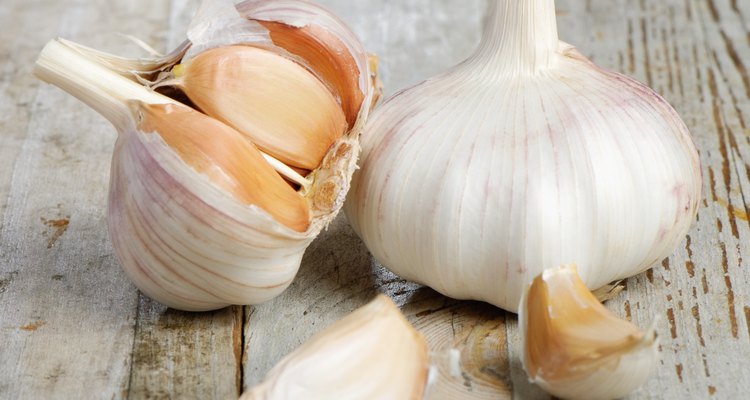
Tatjana Baibakova/iStock/Getty Images
Herbs and spices are key to Greek cuisine. Even the ancient Greeks had access to a huge variety of fresh and dried spices, which is revealed by the huge diversity of seasonings present in traditional Greek cooking. Seasonings and other common ingredients include lemons, garlic, oregano, parsley, onions, mint, dill, capers, sesame seeds, orange flower water, cinnamon, retsina, mastic, fennel, nutmeg, cloves, thyme and basil.
Fruits and Vegetables
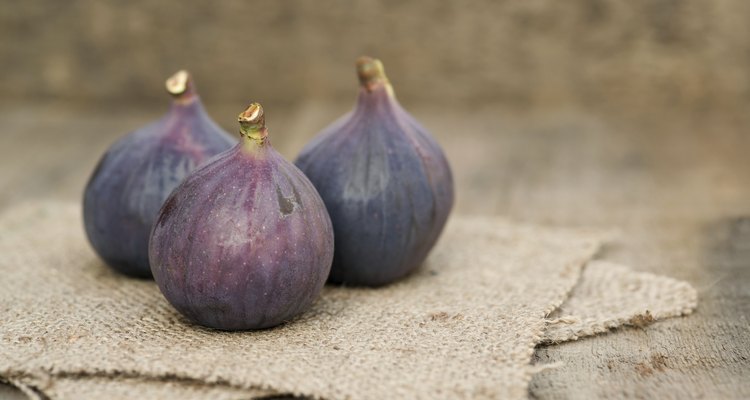
Matt_Gibson/iStock/Getty Images
The Greek climate is mild, so many fruits and vegetables flourish there. Greeks eat tomatoes, spinach, zucchini, eggplants, carrots, potatoes, beets, fava beans, chickpeas and many other vegetables, starches and legumes. Favorite fruits include figs, melons, apples, grapes, strawberries, cherries, apricots, plums and peaches.
Beverages

Antonis Magnissalis/iStock/Getty Images
Water, wine and coffee are common Greek beverages. Additionally, traditional drinks such as ouzo (a licorice-flavored liqueur) and retsina (a resin-flavored wine) are favored.
Related Articles
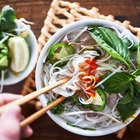
Vietnamese Diet

Facts About Italian Cuisine

African Food Facts
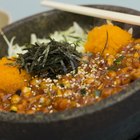
Korean Food Nutritional Value

What Foods Provide Calcium D-Glucarate?

Southeast Asian Diet & Nutrition
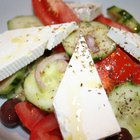
Types of Greek Fruits & Vegetables

Bohemian Cooking

A List of Foods Containing Microbes

The History of Bread Pudding

Are Juniper Berries the Same As Capers?
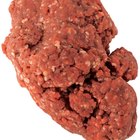
Dangers of Spoiled Ground Beef

Description of Spanish Foods

Which Nuts Are Alkaline Forming?

Sources of Calcium in Indian Food

Nigerian Herbs & Spices
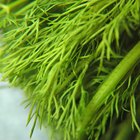
Classic Russian Spices
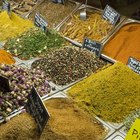
Afghan Spices

Difference Between Peppermint Extract & ...

Mediterranean Theme Ideas
References
Resources
Writer Bio
Emily Maggrett has been writing for more than eight years. Her fiction has appeared in "Jeopardy" and "Rivet" and her journalism has appeared in "The Cascadia Weekly" and "The Western Front." Maggrett holds a Bachelor of Arts in English literature from Western Washington University.